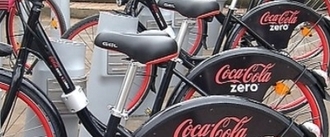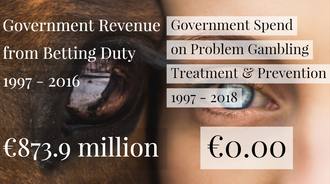- Featured
- Animal Rights
- Anti-racism
- Arts & Culture
- Children
- Climate
- Corporate accountability
- Crime
- Disability rights
- Economic
- Education
- Environment
- Food and Sustainable Production
- Gender Equality
- Governance and Transparency
- Health
- Housing
- LGBT Rights
- Mental health
- Northern Ireland
- Planning
- Privacy and Data Protection
- Rural Inequality
- Social Justice
- Trade
- Transport and Infrastructure
- Workers' Rights
- More
-
Its time to decriminalise drug use for personal useThe current policy of criminalising addicts neither benefits users or society. We have the fourth highest overdose rate in Europe per capita. We've got to realise that we do not have control over drug addiction - we're allowing greedy people, the drug dealers, to sell drugs and destroy a lot of lives.20 of 100 SignaturesCreated by Siobhan O'Donoghue
-
Reinstate funding the INFANT Centre, UCC.The Irish Centre for Fetal and Neonatal Translational Research (INFANT) is Ireland’s first dedicated perinatal research Centre. INFANT works to improve health outcomes for mothers and babies by focusing on clinical and health research and innovation in pregnancy, birth and early childhood. This is the only research Centre in Ireland focused on this work. Research focused on mothers and children must be prioritized.883 of 1,000 SignaturesCreated by Mary Carty
-
SPINRAZAONLY DRUG THAT WILL SAVE KIDS LIVES WHO SUFFER FROM SMA102 of 200 SignaturesCreated by Ann Nolan
-
Invest €105 million Into Mental Health in 2019Too many people have to wait to get the vital mental health care they desperately need. While the Government continues to under invest in our services, people get sicker and even die waiting for assessment and treatment. This has to stop - our mental health is too important. Mental Health Reform have said that we need at least 105 million to get our mental health services where they need to be.15 of 100 SignaturesCreated by Emily Duffy

-
Ireland for Sensible Drug PolicyDrug Policy, and the war on drugs has had children, parents, politicians and stranger murdered in broad daylight. Thanks to gang activity, I myself shake and fear at the noise of bangers going off. The entire country lives in fear of gangs, gangs fed through drug money, drug money coming from the "black market". Little do they realise that the failing drug policy, the politicians and their lobbyists are directly financing this through their stern, "moral" views on dirty drugs. It is absolutely unacceptable. I am sick & tired of burying my friends and lending their brokenhearted families a soaking shoulder to cry on because the government failed them. The governmental position on drugs, the policy set in place in the early 1970's, has absolutely failed them. Where were you when they found their bodies, that nobody heard of because the news would rather report the stash of Class A narcotics they found in a shed, behind a burnt out house and a car filled with hand guns and machetes. Where were you and where are you now? What are you going to do to change this? My name is Sandy Brun, I am a qualified Toxicologist and I hope to graduate with a Master's degree in Neuroscience & Pharmacology. You can find me on LinkedIn. I am sick and tired of burying my friends with dirty drugs in their veins, up their noses and everywhere else. I am sick and tired of being let down by this never ending agonizing political situation that is murdering my friends and breaking the hearts of their families. I've lived in Ireland since I was 10 years old, and I've buried a friend every year since I was 13. You're so proud of the 100th 1916 Easter Rising anniversary that the country celebrated 2 years ago. You're so damn proud to be Irish. You're so damn prejudicial and soft. Stand and fight. For our sons and daughters.38 of 100 SignaturesCreated by Sandy Brun
-
Ireland u/21s Soccer Team, Don’t Play Israel.An International Boycott campaign aims to put pressure on Israel because of its racist occupation of Palestinian land and brutal treatment of the Palestinian people. This Boycott includes sport. UEFA has a commitment to anti-Racism and a tradition of promoting Fair Play. There is overwhelming evidence that the system instituted by the Israeli government against the Palestinian people meets the UN definition of Apartheid. (1) Israel doesn't do 'fair play' when it comes to soccer and Palestine. There are legitimate concerns that Israeli State Forces target Palestinian soccer players as shootings and maiming of youth players/ club players form a pattern going back over a number of years. Israel has bombed Palestinian football stadiums.(3) Lack of freedom to travel also severely restricts Palestinian soccer teams from being able to participate in the sport locally and internationally. This has even interfered with World Cup qualification.(4) The Israeli Football Association plays a role in supporting the illegal settlements which are a war crime under international law. (5) Some examples of what has happened already this year: *The Argentinean soccer team cancelled a friendly fixture with Israel. (6) *In March 2 youngsters were shot by the Israeli army in the West Bank One died. The other boy, aged 14 who was returning from football practice fortunately survived after being shot in the thigh. (8) *30th March 23-year-old football player Mohammad Khalil Obeid was shot in both knees as he filmed himself. The video, published on social media, shows the moment he was shot: standing in an isolated area, not posing any threat. He needs a knee replacement to be able to walk again. As a soccer player his life has been destroyed.(2) *This summer a Gaza children’s soccer team was unable to play in a kid’s tournament in Ireland because of travel restrictions. (7) *Large demonstrations met the Israeli soccer team in Belfast this September. (9) *Adidas withdrew its sponsorship of the Israel Football Association (10) Please, show your support for Palestinian rights and call on the FAI to stand up against apartheid and for fair play, equality and justice. thank-you, Knocknacarra Palestine Network ------------------------------------------------------------------------------------------------ (1) http://www.un.org/depts/dpa/qpal/docs/2012%20Geneva/P3%20mutaz%20qafisheh%20E.pdf (2) https://www.amnesty.org.uk/press-releases/israel-deliberate-attempts-military-kill-and-maim-gaza-protesters-continues (3) https://www.thenational.ae/opinion/a-footballing-test-for-israel-1.132370 (4) https://edition.cnn.com/2015/01/11/football/palestine-asian-cup-japan-football/index.html (5) https://www.theguardian.com/commentisfree/2016/oct/13/fifa-ban-israel-settlement-football-teams (6) https://www.rte.ie/sport/soccer/2018/0606/968505-argentina-cancel-israel-visit-for-world-cup-warm-up-tie/ (7) http://imemc.org/article/solidarity-cup-to-commence-despite-cancellation-of-gaza-kids-to-ireland-trip/ (8) http://imemc.org/article/israeli-soldiers-kill-a-young-palestinian-man-in-nablus/ (9) https://www.irishnews.com/news/2018/09/12/news/hundreds-turn-out-to-protest-at-northern-ireland-game-against-israel-1430702/ (10) https://www.telesurtv.net/english/news/BDS-Win-Adidas-No-Longer-Sponsoring-Israel-Football-Association-20180801-0009.html296 of 300 SignaturesCreated by Dette Loughlin
-
Eligibility for People Living With Disabilities for Household Benefits/Fuel AllowanceWe are in a housing crisis. Many people living with disabilities are forced to share accommodation. Even if they share with strangers people living with disabilities are not eligible for the Household Benefits or Fuel Allowance Package. So people who depend on electricity for medical equipment are excluded because they share accommodation. It makes no sense and feels discriminatory. Allow people living with disabilities eligibility for €35 a month for electricity and for the fuel allowance for the winter. People living with disabilities didn't chose this life and deserve not to be punished for it.11 of 100 SignaturesCreated by Disabled Nobody
-
Routine Blood Glucose Testing For AllDiabetes is a disease that currently affects 425 million people worldwide - and HALF do not even know they have the disease, according to the International Diabetes Federation (IDF). There are different types of Diabetes, but the main two are Type 2 (95%) and Type 1 Diabetes (5%). (You can read up on the difference between the two here: https://www.webmd.com/diabetes/guide/types-of-diabetes ) Early diagnosis can be accomplished through relatively inexpensive testing of blood sugar - so why are both children and adults worldwide still dying of Diabetic Ketoacidosis? (Diabetic Ketoacidosis is a life threatening complication of Diabetes that occurs when your body produces high levels of blood acids called ketones. The condition develops when your body can't produce enough insulin, and can result in swelling of the brain, coma, and death. Read more here: https://www.mayoclinic.org/diseases-conditions/diabetic-ketoacidosis/symptoms-causes/syc-20371551 ) If medical professionals administered a simple finger prick as standard at every and any medical appointment, early detection could prevent these deaths. Routine Blood Glucose Checks should be as common as taking a patient's temperature or blood pressure, especially since half of all Diabetics remain undiagnosed and Diabetes in general is still rising globally (Estimated 620 million people by 2040).26 of 100 SignaturesCreated by Camilla Roelants
-
Save Our Qualified Pharmaceutical AssistantsThe Pharmaceutical Society of Ireland (PSI) Council approved rules that will mean that 248 women- in their late 50's, with an average 35 years of experience working as qualified professionals, will lose their livelihoods. The new rules would restrict a qualified Pharmaceutical Assistant (PA) to working ONE HOUR PER DAY in the absence of a pharmacist, rendering the qualification worthless and the job position economically unsustainable. If the new rules are signed into law by the Minister for Health, PA's will no longer be able to provide professional cover for pharmacists’ day off. “It is not possible to get locum cover so if the PA can’t cover I may have to remain closed some Saturdays…It’s fairly disastrous for pharmacy in Ireland”, a pharmacist explains in research carried out to assess the impact of the rules on pharmacy services. PA's have worked on average 18 years in their present pharmacies and know their customers very well. Continuity of care is paramount to patients' health and safety. This is something that PA's offer but the PSI have totally disregarded and ignored this crucial cornerstone. PA's like Sarah explain how “I will be out of a job. I am only 60 and state pension only available at 67…I have two children in college…it will be a financial disaster…I need my work and my money “, Marie spoke of how “I still have a mortgage so am worried about keeping my family home as I am a widow with a disabled adult living with me” NO consideration or provision for compensation has been made by the PSI, in drafting these rules.2,154 of 3,000 SignaturesCreated by Vyra Hardy Nayar
-
Expand the Cork Public Bike SchemeThe National Transport Authority are responsible for expanding the Cork 'Coke Bikes' scheme. The scheme has been a huge success but it needs to be expanded to cover more of the city! Cork needs to send a clear message to Dublin to secure funding for this.151 of 200 SignaturesCreated by #ibike Cork
-
Increase Betting Duty to Fund Addiction ServicesThe Irish State has no funding stream for services that help to prevent or treat gambling-related harm. We all know someone whose life has been impacted by problem gambling - either their own, or that of a loved one. In fact, 1 in 10 of us will experience gambling-related harm in our lifetime. Unfortunately, the HSE do not acknowledge gambling addiction as an issue and don't even mention the word gambling in their Service Plan. This means that support services are left to desperately under-funded NGOs. Ireland has the lowest Betting Duty in the world - and will continue to do so, even if the rate is increased to 2%. The increase would bring in an additional €50 million to the Exchequer. Problem Gambling Ireland and the Rutland Centre are proposing that €5 million be made available to all relevant addiction services, working in the area of gambling-related harm. This would leave €45 million for other badly-needed state-funded services. We urge you to contact the Minister for Finance and/or your local TD, asking for an increase in the Betting Duty to fund problem gambling support services. Thank you for supporting this cause and taking the time to have a positive impact on the lives of the thousands of people in Ireland, affected by gambling-related harm. Barry Grant, CEO, Problem Gambling Ireland47 of 100 SignaturesCreated by Barry Grant
-
Don't cut the 79 Bus route from Cherry OrchardThere will be a public meeting in the Ballyfermot Civic Office at 7.30pm on Tuesday the 4th September. This meeting is to voice the feelings of residents regarding the cancellation of the 79 bus route from the main road up through Cherry Orchard. This means that anyone living in Cherry Orchard will have to walk to the main road of Ballyfermot to access buses. For all young and old it is very important to turn up and voice your concerns in protest of this proposal. As well as the 79 they want to remove the 76 bus route altogether and change the route of the 18 that will no longer go through Palmerstown or out as far as Sandymouth. All support is greatly needed to prevent our local needs from been taken away. There is public consultation on the 19th September between 3 and 7pm in the Ballyfermot Civic Offices...as this is happening, it is very important that residents and people who work in the Ballyfermot area to meet together as a community to develop a community stance.60 of 100 SignaturesCreated by Maureen McGovern

.jpeg)










